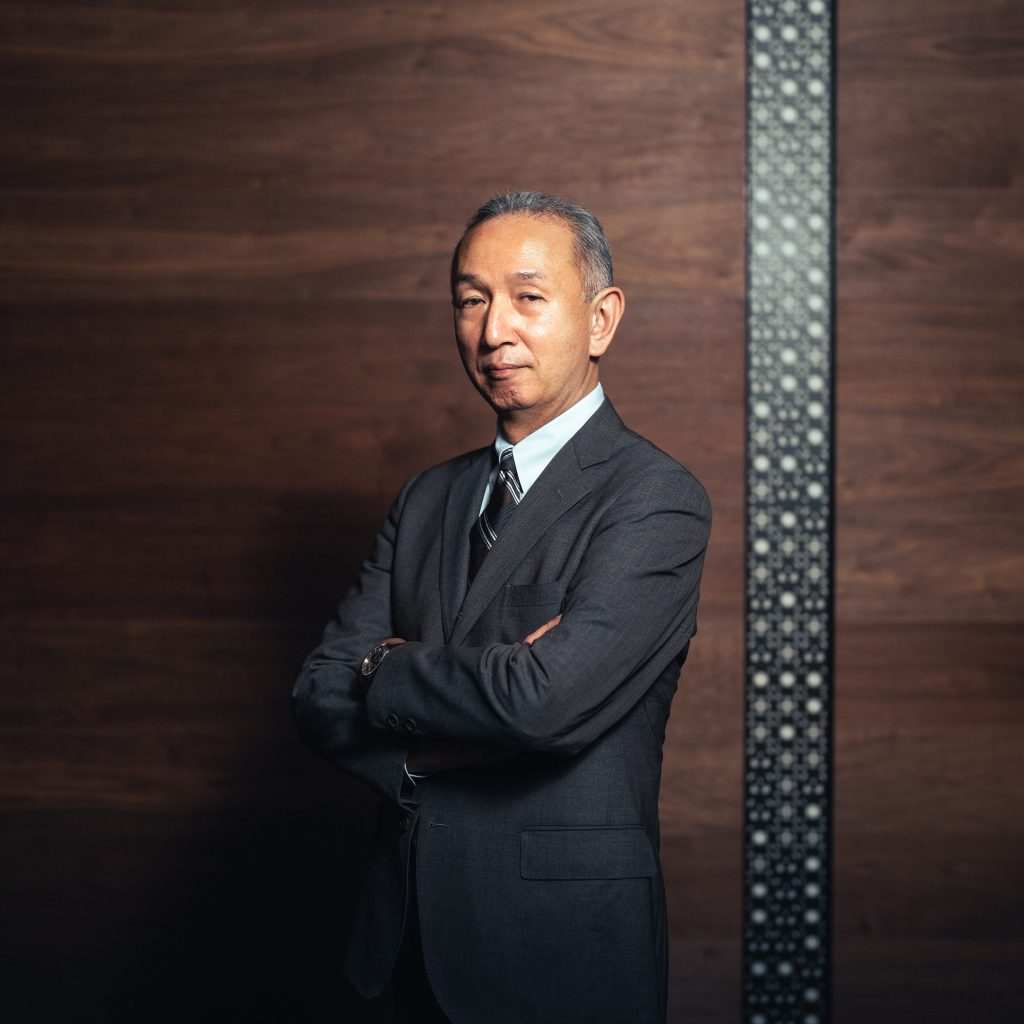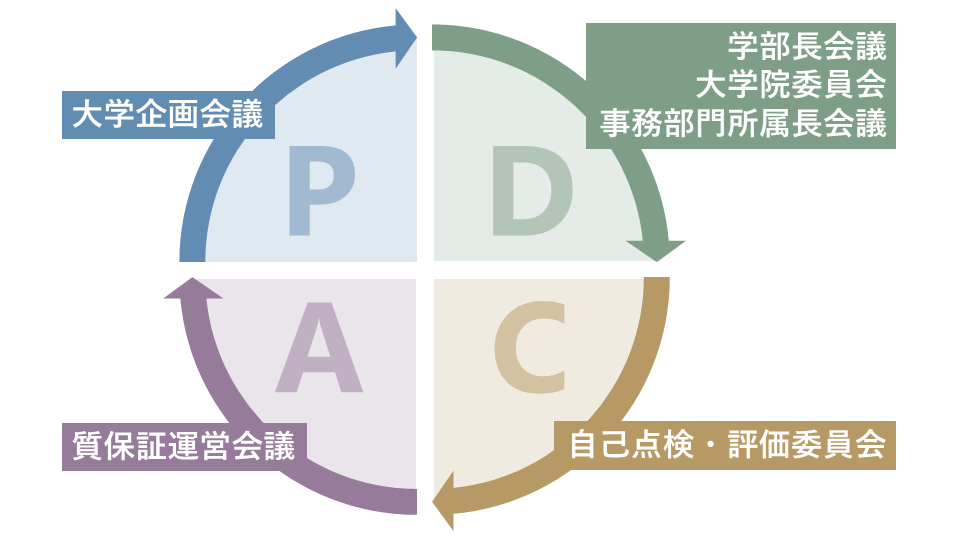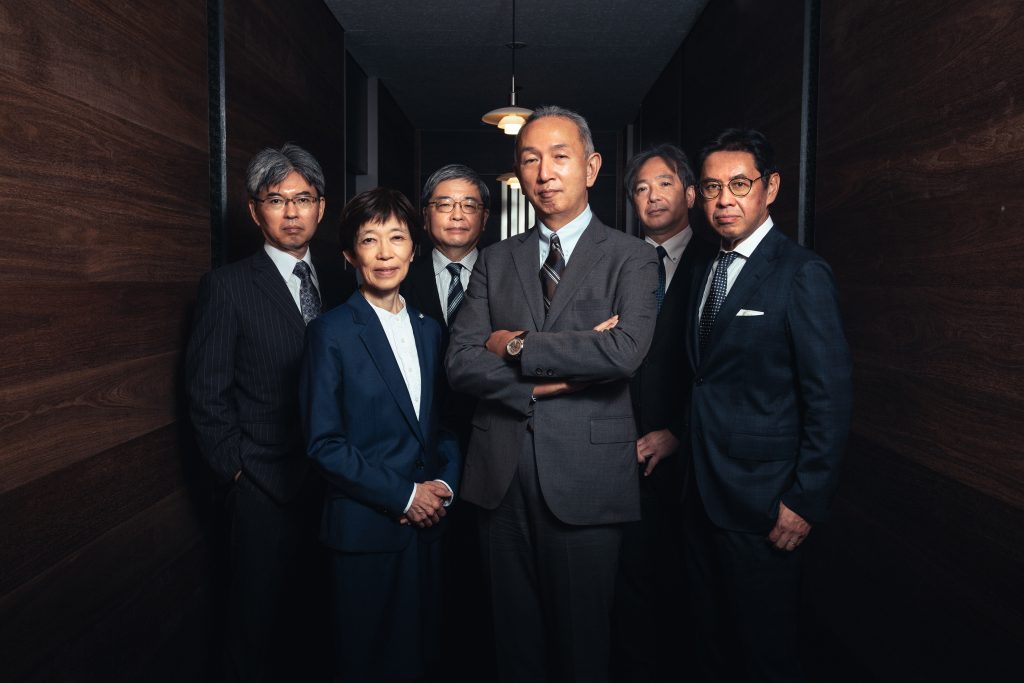Changing Education, Changing Quality Assurance: How Sophia University Defines Quality

Management systems for teaching and learning that inspect, improve, and guarantee the quality of a student-centric education are being constructed at various universities. Sophia University President Yoshiaki Terumichi speaks about the management systems that Sophia University is working on and the philosophy behind its creation.
Establishing the PDCA Cycle: A Starting Point for Taking on Challenges
In recent years, objectively ensuring the quality of a university’s education and of graduating students has become a challenge for universities in Japan. Long before this movement developed, Sophia University had been thinking about quality assurance head-on.
For example, in course evaluations, the enthusiasm of teachers and the intellectually stimulating nature of the courses has been rated highly. In order to ensure the quality of education and improve student satisfaction, instructors are required not only to teach their subject in an understandable way but to stimulate students’ curiosity and awaken their sense of exploration.
In addition, as classes went online due to the COVID-19 pandemic, there was a nationwide movement to raise the quality of online classes to be equivalent to that of in-person classes. However, Sophia University has always believed that online classes are not a substitute for in-person classes, but rather a different type of education with unique advantages. Therefore, we continue to explore the best ways to evaluate the quality of each type of education.
In order to explore and understand further, Sophia University implemented the PDCA cycle university-wide during the 2021 academic year.

P: University Planning Council
D: Dean’s Council
Graduate School Committee
Administrative Division Heads Meeting
C: Self-inspection and Evaluation Committee
A: Quality Assurance Steering Committee
In addition to the Self-inspection and Evaluation Committee, which has mainly been engaged in quality assurance activities, the University has established the University Planning Conference, which plans and issues instructions for educational policies, and the Quality Assurance Steering Committee, which verifies the results of inspections and evaluations and proposes improvements. As various organizations, faculty members and staff are involved in the PDCA cycle, there is a greater sharing of initiatives and issues that can be tackled through the cycle. Furthermore, each organization’s role has become more explicit, enabling us to address a single issue from four different perspectives.
However, the mere establishment of this system is not our end goal. We are embarking on a type of education that does not exist in today’s universities and while there is no system in place yet to evaluate and guarantee this new approach, Sophia University’s Management system for teaching and learning is a starting point for being able to do so.
Forming New Approaches to Education when Existing Methods are no Longer Applicable
Sophia University introduced the concept of “Liberal Education and Learning (Kiban Kyouiku)” to its four-year curriculum during the 2022 academic year. This aims to lay the foundation for lifelong learning and the development of one’s life skills. However, while it is necessary to evaluate whether a student has acquired an attitude for continuous learning even after graduation, it remains difficult to measure and determine at which level a student is said to possess such qualities.
Liberal Education and Learning is interwoven throughout the entire curriculum. Therefore, the quality of education is not only based on the quality of each individual class, but whether the classes work well together and knowledge is effectively layered and contributing to the formation of a foundation.
Going forward, we aim to further advance the concept of liberal education and learning and eliminate the boundary between general education and specialized education, as well as between departments and faculties so that each student can determine their unique design for learning. When students are offered diverse educational careers, ensuring the quality of each experience will be difficult if attempting to rely on conventional management systems for teaching and learning.
Ensuring Quality Embodies the Individuality of a University
The education system to date, including in elementary, junior high, and high schools, has often drawn a standard line somewhere and determined levels of achievement in regard to that line. In contrast, Sophia’s Liberal Education and Learning does not believe in arbitrary lines and goals but rather cultivates the ability to continuously explore one’s own path according to personal and societal needs. It is natural that a student’s aims and desired skills change over time and differs from individual to individual. Ensuring the quality of education and the caliber of students is a significant challenge, however, I believe this issue is at the core of education itself. This is because the act of determining the quality of education and students that a university seeks reflects the philosophy and purpose of that university. The guaranteed quality that a university has accumulated shapes the identity of that university.
To ensure that Sophia University’s distinctiveness is communicated to society, as the University embarks on a new form of education, we must change the way we approach questions of quality and guaranteeing such quality. Sophia University will continue to take on the challenge of evaluating education without goals and instead focusing on assessing individual growth that is unique to each person.
